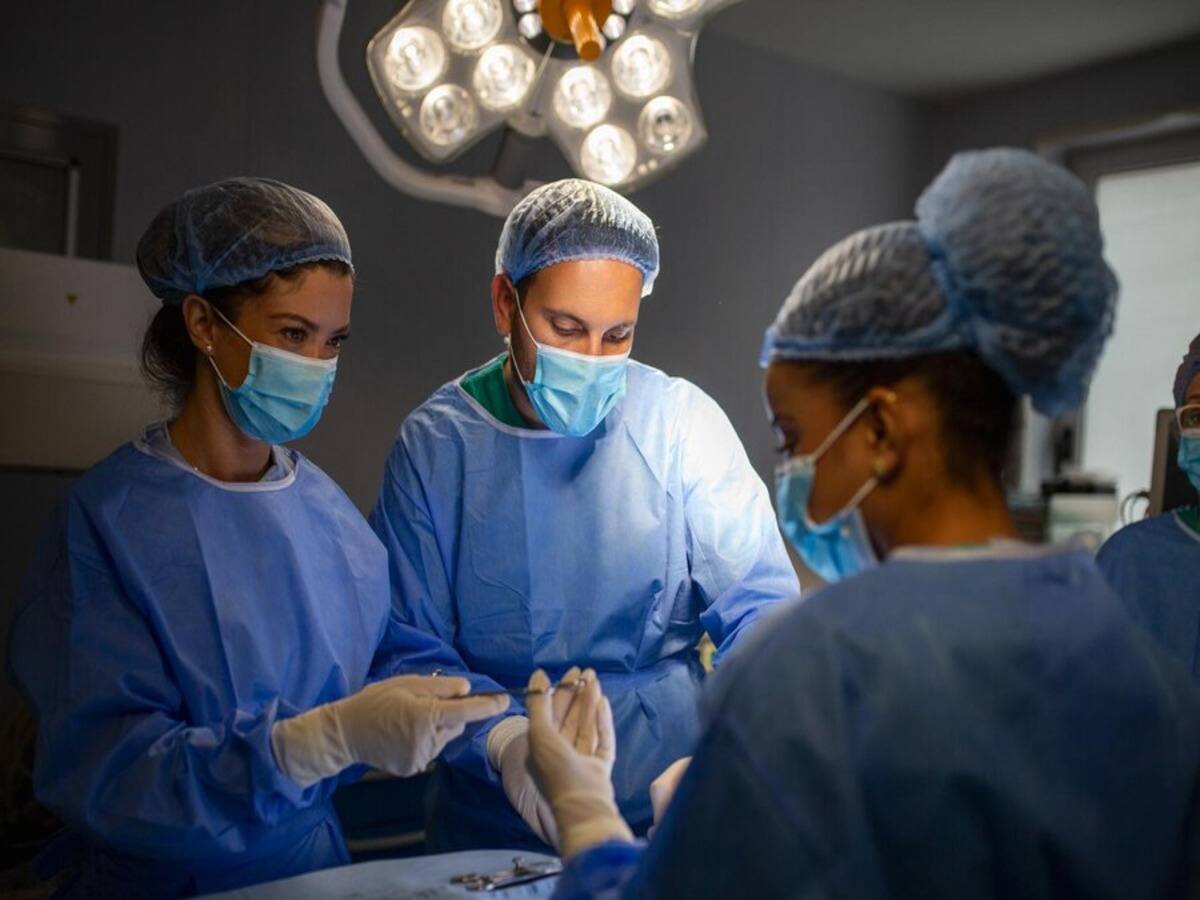Share this @internewscast.com
The patient approached the doctors and sought assistance for her inability to control blood sugar levels. Besides having high cholesterol, she also suffered from many other co-morbidities.
Diabetes is a debilitating condition that occurs either when the pancreas does not produce enough insulin — a hormone that regulates blood glucose — or when the body cannot effectively use the insulin it produces. According to the World Health Organization (WHO), diabetes is a major cause of blindness, kidney failure, heart attacks, stroke and lower limb amputation. It can, however, be treated and its consequences avoided or delayed with a healthy diet, regular physical activity, maintaining a normal body weight, medication and regular screening, and by avoiding tobacco use. In extreme cases, surgery may be required. Recently, a 41-year-old woman underwent a successful surgery to emerge from uncontrolled diabetes. Read on to know what happened.
The patient had diabetes for over 10 years, and the surgery was done effectively to minimise the likelihood of complications. In this case, the woman also suffered from other health issues like high blood pressure, high cholesterol, and thyroid problems, which affected her overall well-being.
What is diabetes surgery?
It is understood that surgical intervention — which has been gaining traction for the last 1 year — significantly reduces the chances of developing complications associated with diabetes, such as diabetic retinopathy, brain stroke, kidney disease, and cardiac and nerve problems, all of which contribute to higher mortality rates in India. According to the doctors who treated this patient, this surgery improves blood sugar levels, and helps with quick recovery. The woman has now stopped taking diabetes medication and has seamlessly gone back to her regular life.
She was treated by Dr Ramen Goel, consultant diabetes and metabolic surgeon, Wockhardt Hospitals, Mira Road, Mumbai and his team.
The process
“Diabetes or metabolic surgery involves laparoscopically rerouting the stomach and intestines to stimulate hormones, which helps in the treatment of diabetes. To qualify for this surgery, the patient should be 18 years or older, should have uncontrolled type-2 diabetes even after taking regular medicines, with body mass index (BMI) of 27.5 or more — indicating an excess weight of roughly 8-10 kilograms. Individual assessments are done to evaluate the pancreatic function, associated comorbidities, and suitability for anesthesia,” Dr Goel said.
He added that post surgery, the recovery period is ‘swift’; blood sugar ‘improves rapidly’ and most patients no longer depend on insulin or medication.
The case
The patient, Kavita Mahesh, weighed 84.5 kgs. Her father suffered from kidney problems. Despite taking the medication regularly, her blood sugar levels remain uncontrolled. She approached the doctors and sought assistance for her inability to control blood sugar levels, and the presence of high cholesterol.

The diabetes menace
Dr Goel said that the prevalence of diabetes mellitus is ‘rapidly growing’, affecting a staggering number of people in the country. “Despite extensive awareness campaigns, over 77 per cent of people with diabetes have failed to achieve proper control. Patients with uncontrolled diabetes face an increased risk of developing macrovascular complications like cardiovascular diseases (including heart attacks) and brain strokes, as well as microvascular complications such as peripheral neuropathy and nephropathy.”
He added that the impact of this disease ‘extends beyond a reduced lifespan’. “Diabetes surgery can be a boon for patients with high HBA1c levels that help to regularise average blood sugar levels within 2-3 months,” he stated.
Gastric bypass and sleeve gastrectomy
The doctor explained that in India, gastric bypass and sleeve gastrectomy are commonly performed metabolic surgeries.
- These surgeries were originally intended for weight loss.
- They can now be offered to patients with a BMI of 27.5 who have uncontrolled diabetes.
- The surgeries work by changing gut hormones and gut bacteria, and limiting food intake.
- It results in improved insulin sensitivity, increased insulin secretion, and better glycemic control.
“Its purpose was to redirect food to the latter part of the intestine, which secretes a hormone called GLP-1. This hormone reduces insulin resistance and stimulates increased insulin production from the pancreas. The procedure typically takes around one hour, and patients are allowed to drink water and walk within 6-8 hours after surgery.”
This patient was ‘completely off’ diabetes medicines one week after discharge — which happened earlier this month — and her HAB1C levels have already dropped by 10 per cent. “Blood sugar levels start improving within the first two days after surgery. In most cases, injectable insulin can be discontinued within 2-7 days post-surgery,” the doctor concluded.














